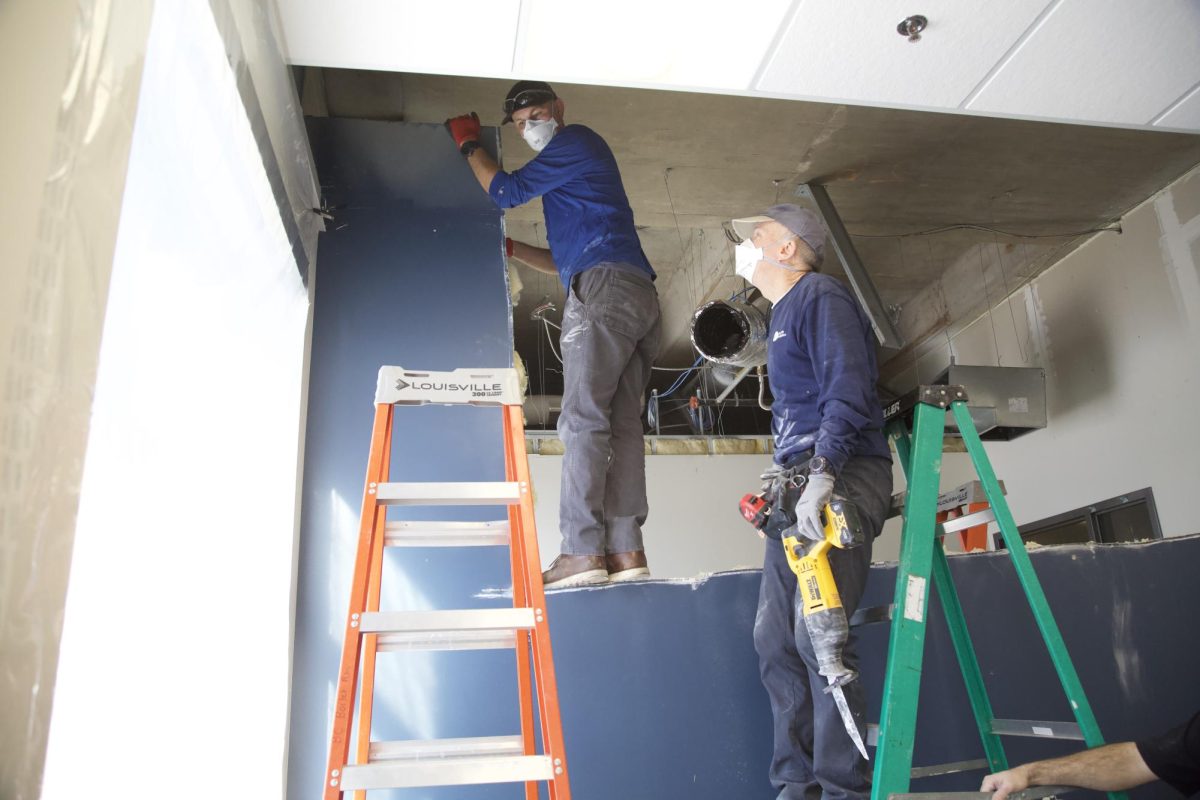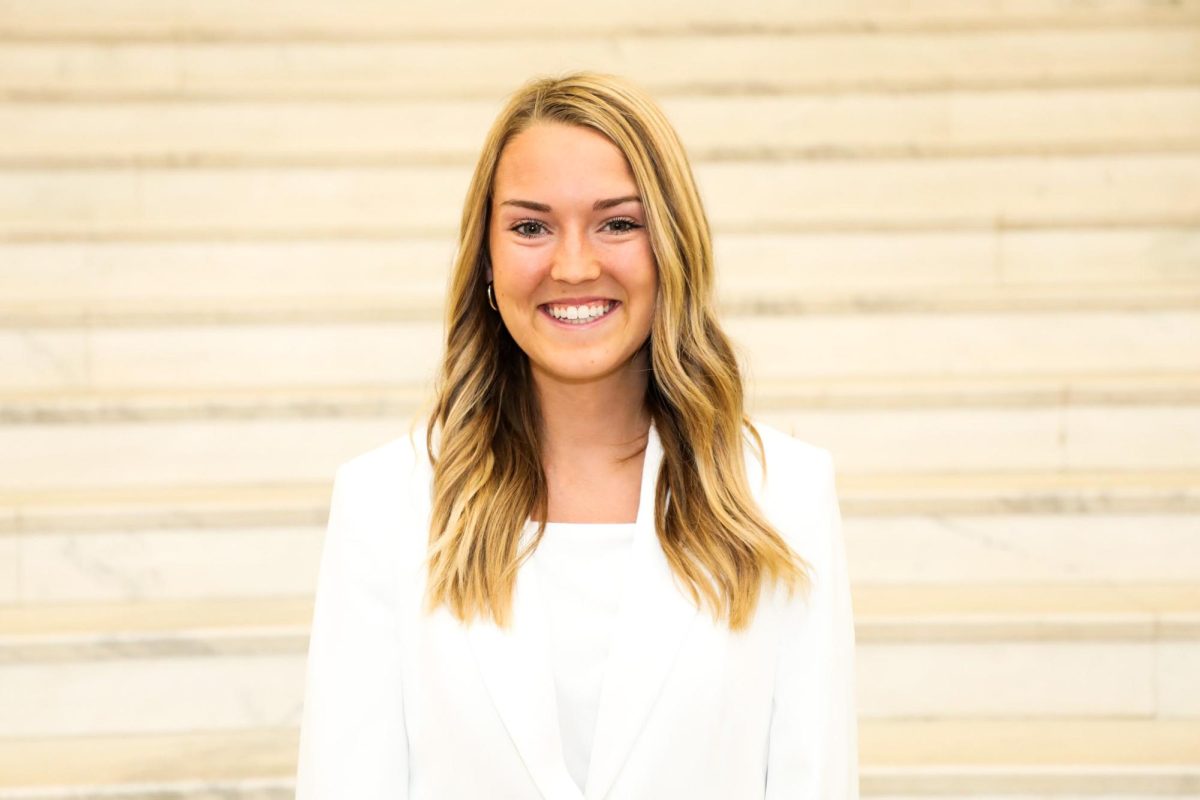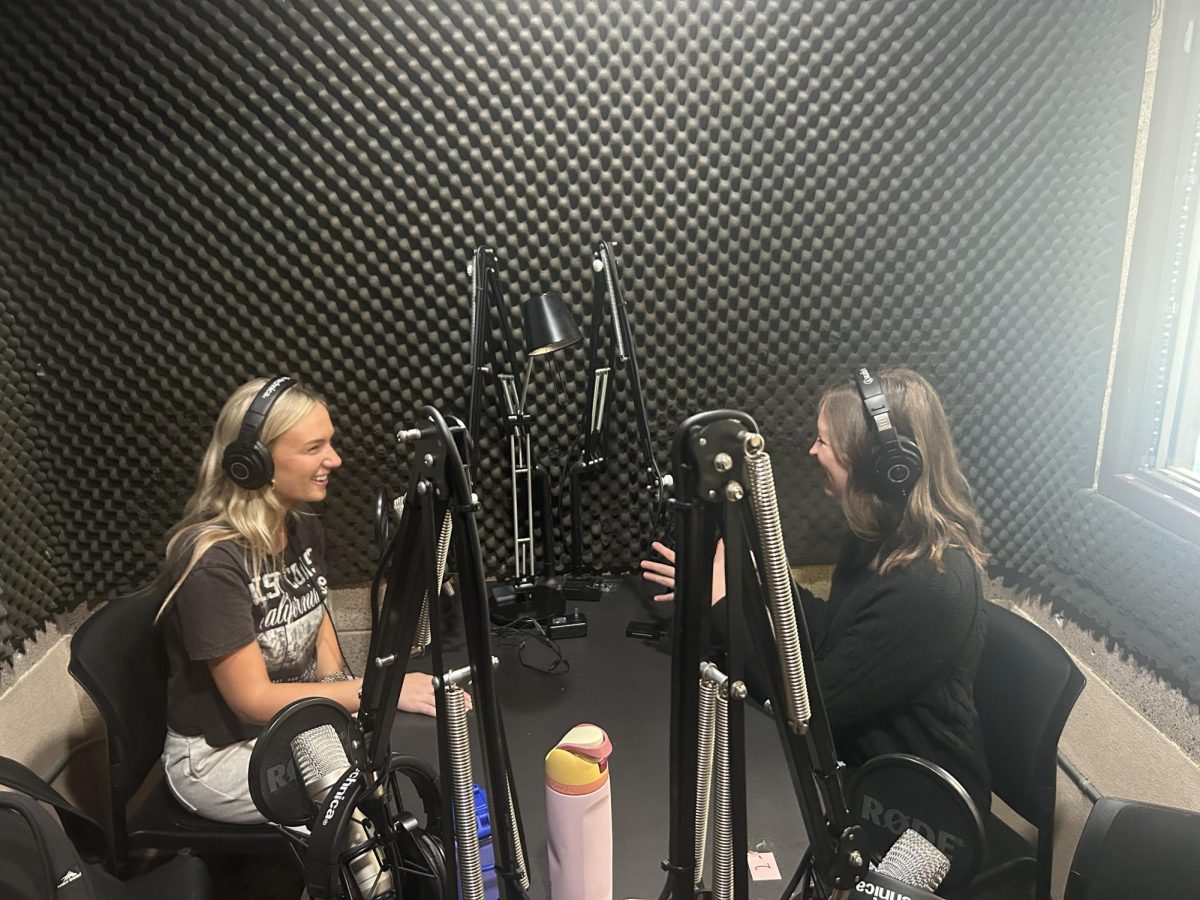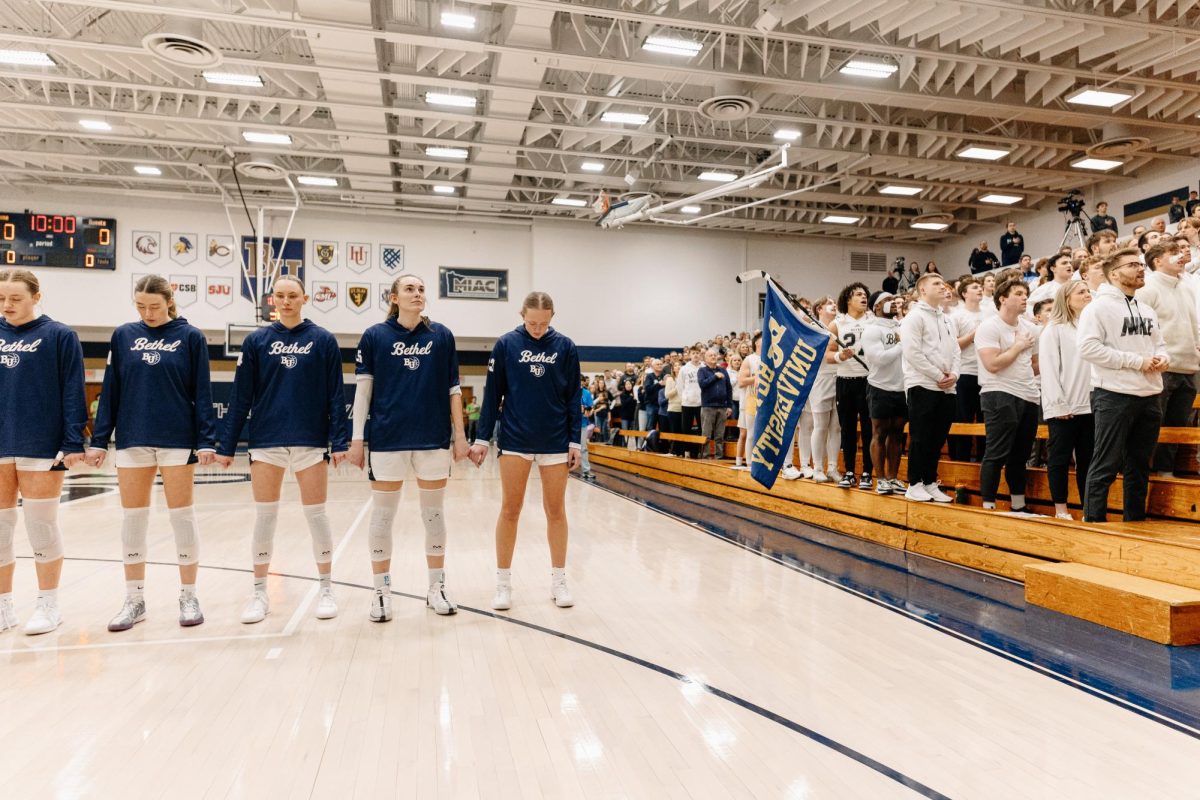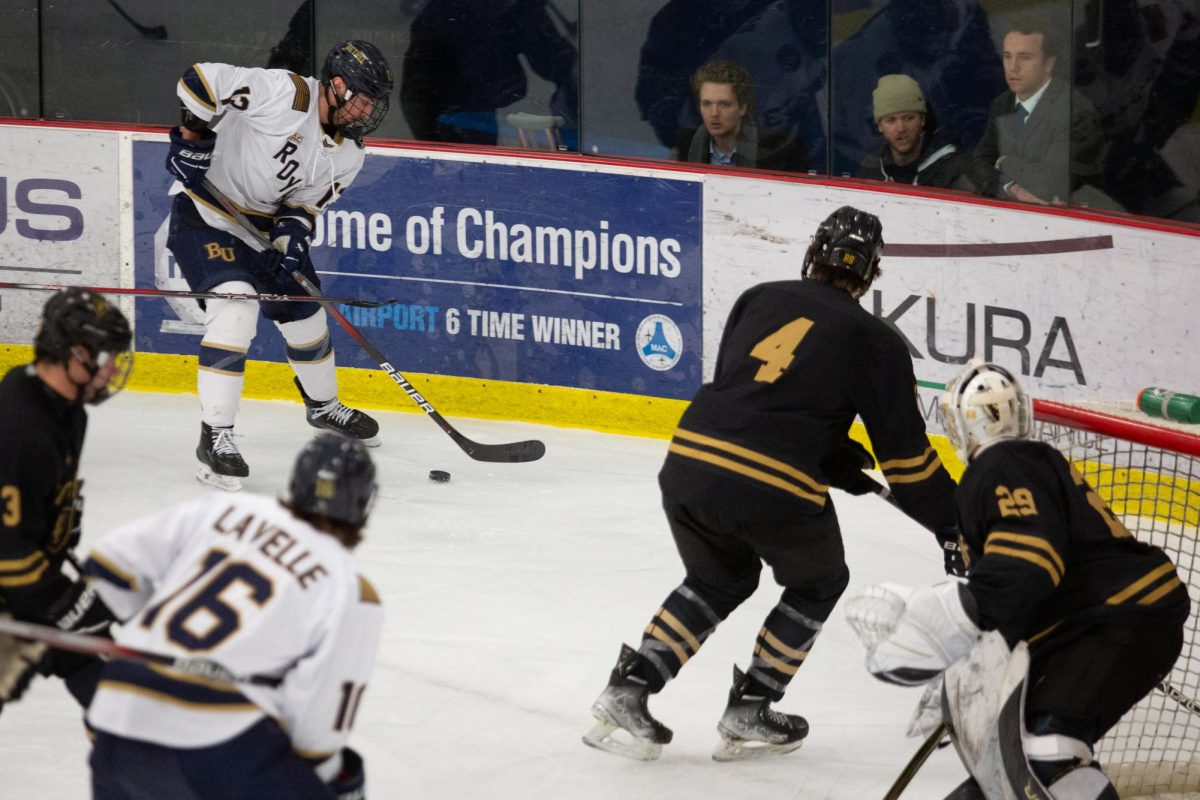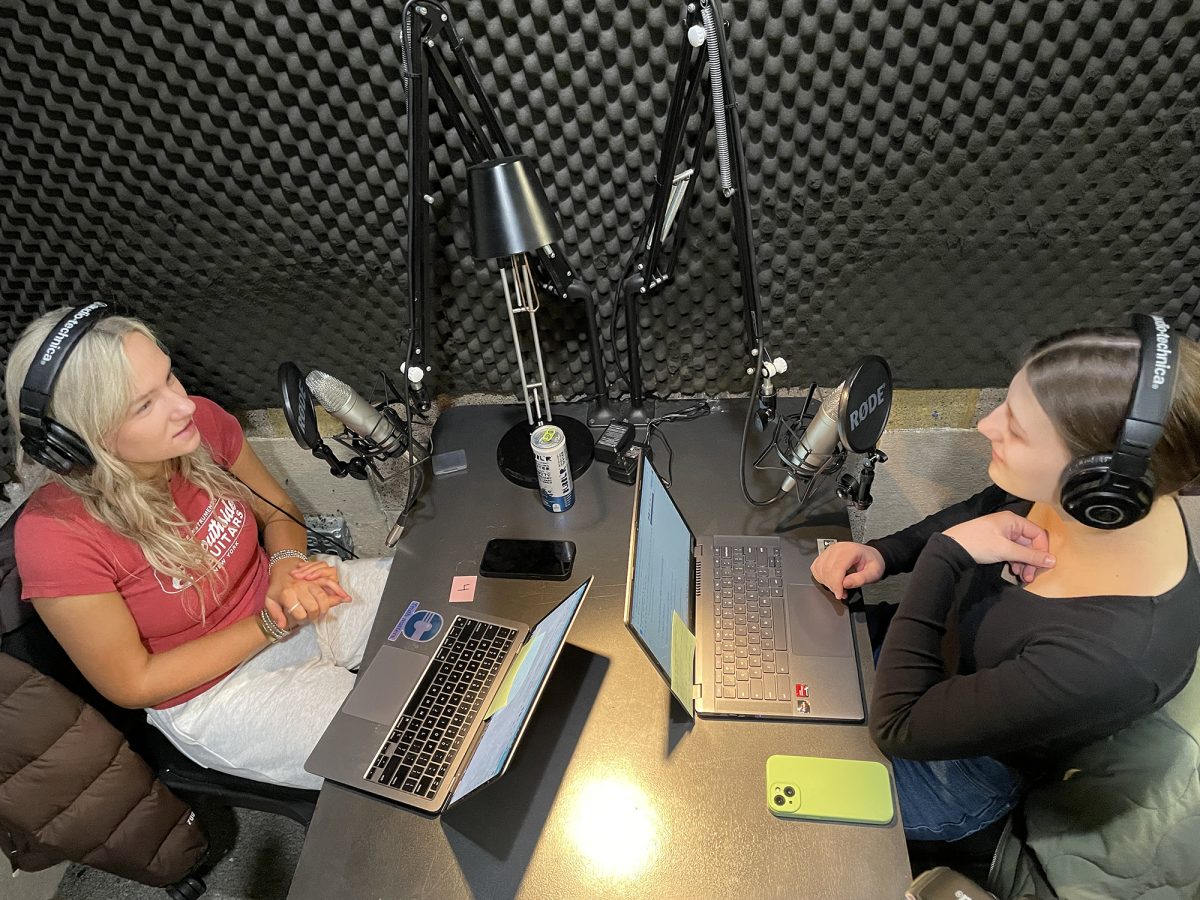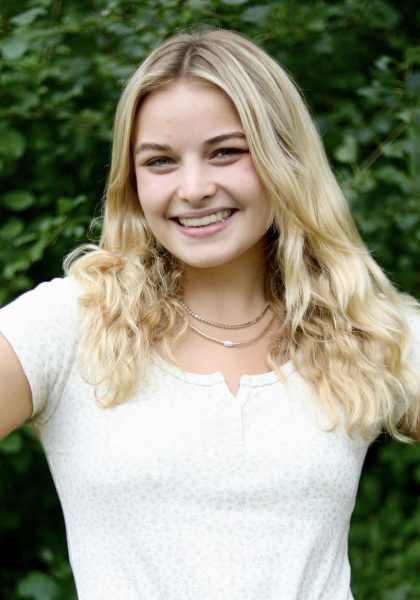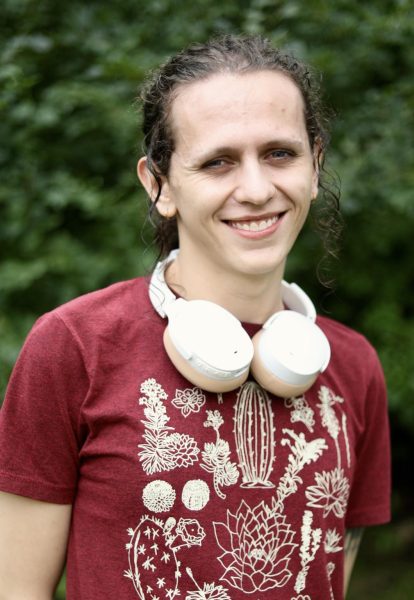Click. Bethel University student Noah Schmit turned off his TV in the middle of the first presidential debate. When the second debate aired he couldn’t bring himself to watch it. The theatrical nature and lack of policy description left the new voter disappointed in the 2024 election.
“I’m definitely turned off to the news more often now,” Schmit said. “National politics has become so emotional, kind of stressful, and then the coverage of it is really like reality TV.”
Schmit decided to get involved as more than a political observer, and served as an election judge in 2020 before he was eligible to vote, and now he is a first-time presidential election voter. He stays up to date with “boring” news discussing the policy behind the candidates. Gathering information from Minnesota Public Radio and BBC helps Schmit paint a clearer picture of his election decision. It takes emotional weight away from the issues, leaving him with facts.
“I am concerned with the kind of culture that we’re in and how polarized it is,” Schmit said. “That people aren’t taking good account, or really researching their candidates.”
According to Schmit, no one wants to break the harmony at Bethel University, causing students to shy away from speaking about political views.

Dr. Andrew Bramsen, a political science professor at Bethel, agrees students should learn how to have respectful political conversations.
“It’s okay for us to disagree, it’s okay for us to not think the same thing.” Bramsen said. “We can still value each other, as opposed to just completely shying away from those conversations.”
Through his education in political theory, Bramsen feels he can peel away the layers of emotion to facilitate political conversation for what it is: policy.
Bramsen prepares for presidential elections by focusing on international news sources such as BBC or reading headlines from major US news outlets such as the Washington Post. Although Bramsen believes that a large part of election season tension can be credited to Americans operating on different sets of “facts” provided by the vast amount of news sources Americans subscribe to. Leading new and experienced voters to feel weary of seeking the truth behind political news.
New or experienced voters mark your calendars for Nov. 5, 2024. Are you ready for election day?


